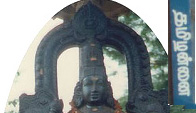
 |
||
| Home Culture Lessons > I 1 2 3 4 5 6 II 1 2 3 4 5 6 III 1 2 3 4 5 6 IV 1 2 3 4 5 6 V 1 2 3 4 5 6 VI 1 2 3 4 5 6 Select Unit | ||
|
| ||
Scolding and YellingScolding and yelling at someone can be done in varying degrees. There are particular words and phrases which can be used for this. Someone can be scolded very lightly, with no offense necessarily taken and even enjoying such teasing. However, the nature of some words and phrases can make the other person really angry no matter in what context it is uttered. Using the names of animals:Each animal is understood in Tamil culture with specific (negative) quality, and using the names of such animals to talk about someone would make that person angry given the quality invoked. When yelling with the names of animals, the person yelled at may or may not have the qualities of the animals in that context, but would be used just to denote someone's angry mood. நீ ஒரு நாயி. ஏன் இப்படி கத்திக்கிட்டே இருக்கே? 'You are a dog. Why are you screaming all the time'. சும்மா இருடி கழுதெ. வாயெ தொறெந்தா பல்லெ ஒடெப்பேன் 'Keep quiet, you donkey! If you open your mouth (try to utter anything), I will break your teeth'. பன்னி மாதிரி எதையாவது தின்னுக்கிட்டேயிருக்கியே! 'You are eating like a pig.' எறுமெ மாடு! ஏதாவது உறுப்படியா செய்யேன்! 'You the water buffalo! Why don't you do something good?' ஏய்! கொரங்கு! சொன்னா கேக்க மாட்டியா? 'Hey! Monkey! Won't you listen to me?' Names of devils and supernatural elmentsUsually when referring to someone's appearance and behavior, the names of supernatural entities like பேய் 'devil', பிசாசு 'ghost', எமன் 'death god', மூதேவி 'godess of ill-luck', தரித்திரம் 'unlucky person' etc., and insanity like பைத்தியம் 'insane person' etc., are used. These words usually don't have as much effect in kindling the other person's anger as animal names. Some times, husbands and wives, lovers, and other friends use these words to yell at each other to kiddingly show their extraordinary affection. Words referring to unfortunate status of some person--e.g., as a widow, poor person, etc., are also used to yell at somone.கம்மனாட்டி 'widow': This word is used to scold both male and female persons, despite the fact that it is a feminine noun. மடையன் 'senseless-male' vs. மடச்சி 'senseless-female' கிறுக்கன் 'insane (male)', கிறுக்கி 'insane (female)'. கழுத்தறுப்பு 'boring person' (lit. one who would cuts the neck) Using body partsSome of the body parts, especially hair and other private parts are often used as part of the 'scolding vocabularies' in Tamil. When words get such specialized meanings, using those words in normal contexts becomes difficult. So, new vocabularies representing such bodyparts from ancient Tamil are reused. One example is the use of the word மயிர் for hair. Saying this word in anger is considered very rude, and can make the other person very angry as well. So, the word முடி is used instead in normal occasions. Saying மயிர் வேட்ட போறேன் 'I go to get a haircut' is not common but முடி வெட்ட போறேன் is. Also, telling the action of 'pulling one's hair' also attained this unacceptable meaning. The sentences மயிர் புடுங்கு 'pull the hair'; என்ன? மயிர் புடுங்க போனியா 'What? did you go to pull the hair or something?'; என்ன பெரிசா புடுங்கிட்டெ? 'what (the hell) did you make a big thing of? (lit. what did you pull that was so big?) etc., imply bad connotations, and should be avoided in normal contexts. |
|
© South Asia Language Resource Center (SALRC) |